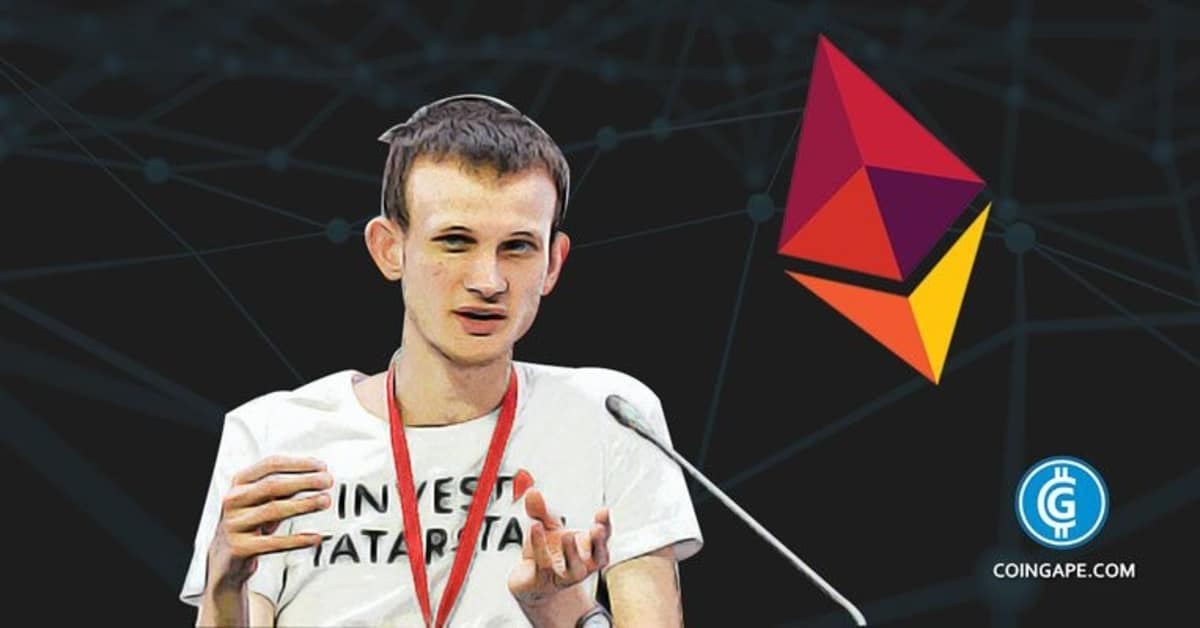Ethereum Founder, Vitalik, Explains To Critics Why Eth 2.0 Will Be A “Deflationary Currency”

Ethereum founder, Vitalik Buterin hit back at proof-of-stake (PoS) critics as the development of Ethereum 2.0 is questioned on its ability as a deflationary currency.
The world has been awaiting the launch of ETH 2.0, a planned update on the Ethereum blockchain, which will switch the chain from a proof-of-work (PoW) consensus system to a proof-of-stake (PoS) mechanism. However, a part of the crypto community has come out strongly opposing the switch claiming it would not better the system – at least on its deflationary currency metric.
Vitalik has now come to the defense of the PoS system bashing the increasing criticism on the PoS’ lending model. In a mini-tweet storm, Vitalik wrote,
“I don’t believe the most recent “PoS won’t work because staking will get outcompeted by lending” hype and you shouldn’t either.”
Competition between DeFi and PoS will lead to net vulnerability
Grimm cryptocurrency co-founder, Andrew COP, critiqued the overall system of Eth 2.0 planned upgrade to the PoS system claiming the growth of DeFi may end up competing with the protocol. At the end of March reports showed that the exponential growth of DeFi products was cannibalizing the block space on ETH gradually making ICOs and ETH transactions slower.
He writes,
“Hi, what about POS vulnerability with reference to DeFi apps (most growing sector in 2019)? Competition between DeFi services and the POS protocol itself (DeFi stacking vs POS stacking) will lead to net vulnerability, attacks and centralization.”
Furthermore Andrew tears into the lack of deflationary policies (common to PoW chains such as Bitcoin) that ETH 2.0 will bring about claiming lending will outdo staking in the long run.
However, Vitalik does not agree with a single bit of Andrew’s analysis.
Vitalik tears into critics: “Interest rates do not equalize in all currencies”
According to Vitalik, Andrew’s analysis is off the mark as lending rates do not always equalize to be the same across all currencies. He further explains,
“This is wrong because fiat is an inherently interest-bearing asset in ways that crypto is not, so of course interest rates on fiat are higher.”
Notwithstanding, the model used by Andrew further misses out on the reverse reward ratio which ensures that “if deposits become very low reward rates go extremely high to motivate more people to deposit.” This model is actually bettered by totally moving to a staking platform as compared to the PoW mechanism.
With Ethereum lending rates being very low (Compound offers 0.01%), and the blockchain’s inverse rate ratios in place, Vitalik believes Eth 2.0 will be a success.
Recent Posts
- Crypto News
BlackRock Bitcoin ETF Ranks Among Top ETFs In 2025 Despite Crypto Downturn
The BlackRock Bitcoin ETF (IBIT) has emerged as one of the top exchange-traded funds (ETF)…
- Crypto News
Stablecoin Adoption Deepens as Klarna Turns to Coinbase for Institutional Liquidity
Klarna has taken a major step into crypto finance by partnering with Coinbase to accept…
- Crypto News
Ripple, Circle Could Gain Fed Access as Board Seeks Feedback on ‘Skinny Master Account’
The U.S. Federal Reserve has requested public feedback on the payment accounts, also known as…
- Crypto News
Fed’s Williams Says No Urgency to Cut Rates Further as Crypto Traders Bet Against January Cut
New York Federal Reserve President John Williams has signaled his support for holding rates steady…
- Crypto News
Trump to Interview BlackRock’s Rick Rieder as Fed Chair Shortlist Narrows to Four
The Fed chair race is heating up with U.S. President Donald Trump set to interview…
- Crypto News
Breaking: VanEck Discloses Fees and Staking Details for its Avalanche ETF
The leading crypto asset manager VanEck amends its Avalanche ETF with the U.S. Securities and…